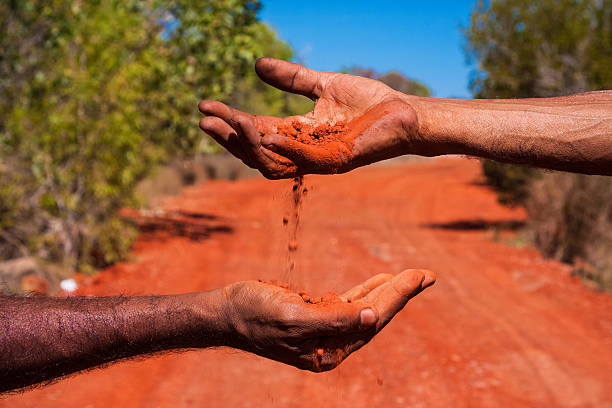
Indigenous Australia, also known as Aboriginal Australia, refers to the Indigenous peoples of Australia and their cultural heritage, including their customs, beliefs, art, and music. Indigenous Australians are descendants of the original inhabitants of Australia and have a rich and diverse cultural heritage that dates back tens of thousands of years. Despite the challenges and hardships that Indigenous peoples have faced over the centuries, their cultural traditions have survived and continue to be an important part of Australia’s national identity today.
The Indigenous culture of Australia is one of the oldest continuous cultures in the world and has a deep connection to the land and sea. The landscape and natural resources, such as rivers, forests, and animals, were essential to the survival of Indigenous communities and were respected and revered as sacred. This connection to the land is reflected in many Indigenous cultural practices and beliefs, such as the tradition of “songlines,” which are interconnected pathways across the land that represent spiritual and cultural stories passed down through generations.
Indigenous Australians have a rich tradition of storytelling, which is a crucial part of their cultural heritage. The stories often serve as a way of passing on important cultural values, beliefs, and historical events from one generation to the next. The stories are also used to explain the creation of the land, the stars, and the animals, and to provide moral guidance for the community.
Art is also a significant aspect of Indigenous culture, and has been used to tell stories, commemorate events, and mark significant places. Indigenous artists have created a diverse range of art forms, including rock art, body painting, bark paintings, weaving, and pottery, which are used to represent their cultural traditions and beliefs. The art is often highly symbolic and serves to convey important messages about the environment, community, and the spiritual realm.
Music is also an important part of Indigenous culture, and is used to mark important events, such as births, deaths, and initiations. Indigenous music is often associated with dance and includes a variety of instruments, such as didgeridoos, clapsticks, and boomerangs. The music is an important way of expressing cultural identity and preserving cultural traditions, and is often used in religious and spiritual rituals.
Indigenous Australians have a rich tradition of spirituality, which is closely tied to their connection to the land and sea. They believe in the Dreamtime, a spiritual realm that exists beyond the physical world, where the ancestors created the land, the animals, and the people. The Dreamtime is an important part of Indigenous beliefs and is often invoked in cultural practices, such as storytelling and music, to explain the creation of the world and to provide guidance for the community.
Indigenous culture has faced many challenges over the centuries, including the arrival of Europeans, which brought about the dispossession of their land, the suppression of their cultural traditions, and the loss of their language. Despite these challenges, Indigenous culture has survived, and today Indigenous Australians are working to revive and preserve their cultural heritage.
The revival of Indigenous culture is an important part of the healing process for Indigenous peoples, who have faced a long history of colonization and oppression. The revival of their cultural traditions is helping to rebuild their pride in their heritage, and to pass on their cultural traditions to the next generation. Indigenous cultures are also playing an important role in the development of a national identity in Australia, which recognizes and celebrates the diversity of the country’s heritage.
The cultural significance of Indigenous Australia is important not only for Indigenous peoples but for all Australians. Indigenous cultures have made a unique and valuable contribution to Australia’s national identity, and their cultural heritage is an important part of the country’s history and heritage. By celebrating and preserving Indigenous culture, Australians can learn about the rich and diverse heritage of their country.



